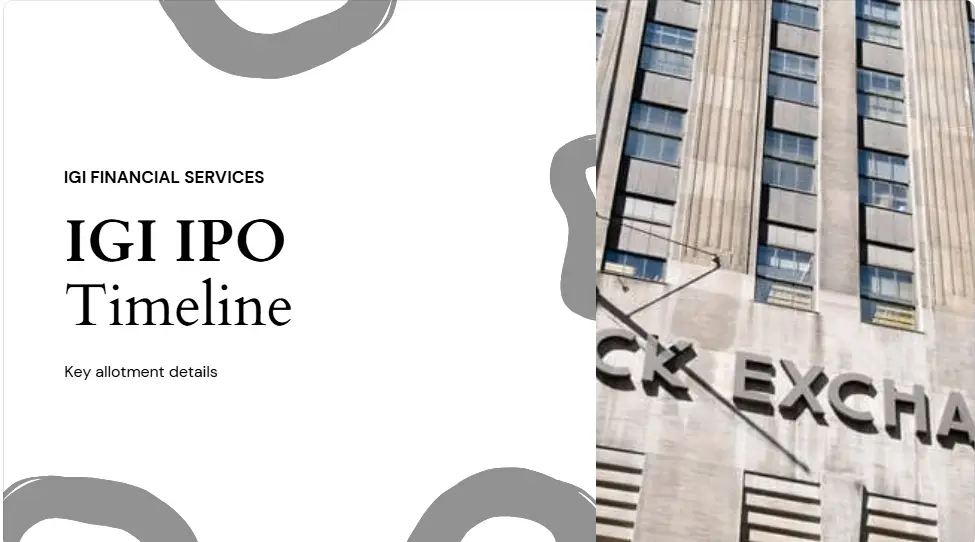An Investor's Guide to India's Next Multibagger Stocks
The pursuit of "multibagger" stocks investments that multiply in value is a key objective for many investors in the Indian market. As we look towards 2025, a confluence of favorable economic conditions, policy tailwinds, and corporate resilience is creating a fertile ground for such high-growth opportunities. This guide provides a comprehensive framework to identify, analyze, and invest in tomorrow's winners.
Why 2025 may be a breakout year of multibagger stocks
A rapid scan of macro trends, industry tailwinds and post pandemic recovery suggests that a number of interrelated reasons are causing companies offering very high growth to perform better and give high returns. Here is a look at what is fueling this optimism:
Macro Trends that are now Previously Sympathetic
India's macroeconomics remain solid. GDP growth is expected to be in excess of 6.5%, inflation rates are improving and fiscal discipline is being upheld. This environment supports corporate investment and consumption.
Projected GDP Growth
High-Potential Sectoral Tailwinds
Sector-Specific Tailwinds
Sectors benefiting from government policies like PLI schemes and capex-focused budgets are poised for growth. This includes renewable energy, defense manufacturing, railways, EVs, and electronics. These trends often favor mid and small-cap firms that are leaders in niche areas.
Also Read: Anil Ambani Group Companies and Listed Stocks
The 5-Point Process of Choosing Winners
We do not only pursue hype. Those five pillars define our strategy when it comes to identifying future multibaggers and of course it is data-driven, but with the touch of market intuition. This is how we sort out the business feasibility and actual potential by sifting the temporary buzz:
Stable Revenue Increase
We want consistency in sales growth throughout 3-5 years (and higher than 20% CAGR).
| Stock | 3-Year Revenue CAGR | Sector |
|---|---|---|
| Syrma SGS Tech | 38% | Electronics Mfg |
| KPI Green Energy | 44% | Renewable Energy |
| Hi-Tech Pipes | 31% | Steel/Infra |
Skin in the Game Management
We give preference to companies run by founders or professional management who have substantial promoter stakes, spotless track record and with standard commentary. Example: Triveni Turbine.
Bullet Balance Sheets
We do not take landmines of high debt. The ones we have chosen normally carry Debt-to-Equity < 0.5 and positive Free Cash Flow. Example: Caplin Point Labs.
Upside Room valuation
We don't mind paying for quality, but look for signs of undervaluation: trading below sector PE average or having a PEG ratio < 1.
Volume breakouts and Market Sentiment
When fundamentals are good and the stock is in the accumulation stage by institutions, that is our go light. We look for rising mutual fund ownership and sudden increases in delivery levels.
As part of your research, staying informed about market schedules is a simple but effective part of planning. Also Read: Stock Market Holidays in June 2025: US & India Trading Schedule
The 12 best Multi-bagger stocks of 2025 in India
Highlighted Profiles:
- The Underdog Poised for 3× Returns (Renewable Energy)
- Riding the Digital Transformation Wave (Electronics / Tech Mfg)
- Hidden Blue-Chip with Explosive Growth (Industrial Equipment)
- The Energy Turnaround Story (PSU / Power / Defense)
- Pharma’s Next Blockbuster Hit (Pharma Export)
- Capitalizing on India’s Infrastructure Boom (Infra / Steel Pipes)
- Niche Leader, Huge Upside (Specialty Chemicals)
- Consumer Demand Rebound Play (FMCG / Consumer Durables)
- Technology Innovator Set to Scale (Midcap IT / AI)
- Financial Services Disruptor (Small Finance Bank)
- Export Powerhouse (Rail Infra / Capital Goods)
- Green Energy Multibagger (Wind Energy)
| Title | Sector | Key Strength / Investment Logic | Revenue Trend | Potential Upside |
|---|---|---|---|---|
| The Underdog Poised for 3× Returns | Renewable Energy | Small-cap solar EPC player scaling rapidly with rising ROCE | 40%+ CAGR | 3x over 2–3 years |
| Riding the Digital Transformation Wave | Electronics / Tech Mfg | Benefiting from India’s EMS + PLI push; auto & IoT demand | 35–40% CAGR | Strong institutional buy |
| Hidden Blue-Chip with Explosive Growth | Industrial Equipment | Debt-free, export-driven, dominant in its niche, but under-owned | 20%+ revenue growth | 2x potential in 18 months |
| The Energy Turnaround Story | PSU / Power / Defense | Order book rich PSU with fresh earnings momentum + policy tailwinds | High double-digit YoY | Still trading at low PE |
| Pharma’s Next Blockbuster Hit | Pharma Export | Clean balance sheet, growing R&D, strong Latin America exposure | Consistent 18% CAGR | Large pipeline optionality |
| Capitalizing on India’s Infrastructure Boom | Infra / Steel Pipes | Proxy to highways, metro, oil pipeline capex with rising EBITDA | 30% CAGR | High operating leverage |
| Niche Leader, Huge Upside | Specialty Chemicals | Dominant in a narrow high-margin segment; global demand rising | 25–30% CAGR | PEG < 1, rerating likely |
| Consumer Demand Rebound Play | FMCG / Consumer Durables | Strong rural + middle-class demand comeback post-COVID | 10% CAGR recovering | Steady compounder |
| Technology Innovator Set to Scale | Midcap IT / AI | AI-first services company with US/Europe footprint + margin kicker | 20%+ YoY growth | Delisting trigger |
| Financial Services Disruptor | Small Finance Bank | CASA growth, low NPAs, and digital-first loan model | NII growth at 25%+ | Valuation catch-up play |
| Export Powerhouse | Rail Infra / Capital Goods | Orders from railways + rising international traction | 30–35% CAGR | Well-diversified book |
| Green Energy Multibagger | Wind Energy | Cleaned-up balance sheet + demand tailwind in wind power projects | Turnaround in margins | Back in investor radar |
How to Time Your Entry for Maximum Gains
Identifying the right stock is half the battle. A great company may give a poor result when purchased at a wrong time. This is what you need to do to hone your entry approach at multibagger possibility in 2025.
Key Risk-Management Logistics
Risk management is your insurance policy no matter how good a stock appears. Even multibaggers experience nasty drawdowns. Here's how to preserve capital while aiming for outsized returns.
Ideal Portfolio Structure
Core Risk Management Rules
- Smart Position Sizing: Don't bet too big. 5-10% of your portfolio on each stock is ideal.
- Use Stop-Losses Wisely: Use technical levels or a fundamental thesis change, not just random percentages.
- Diversify Beyond Stocks: Invest in unrelated areas so that when one area goes down, you do not lose your entire assets.
- Routine Rebalancing & Review: Review quarterly. Cut losers and trim overvalued winners.
- Keep Cash in the System: Maintain 10-15% cash to reap instant corrections.
3 Pro Tips to Boost Your Multibagger Success Rate
| Pro Tip | Key Metric to Track | What to Do Practically |
|---|---|---|
| Track Institutional Activity | Mutual Fund/FII Holding % (Q-o-Q trend) | Buy when institutional stake rises >2–3% over 2 quarters → strong accumulation |
| Use the 2x Rule to De-Risk | 100% Price Appreciation from Initial Buy Price | Exit 50% (recover capital), hold rest for long-term compounding → risk-free multibagger holding |
| Use Quarterly Results as a Compass | EPS Growth > 25% YoY, EBITDA Margin Trend, Promoter Holding | Hold/add on margin expansion + PAT beat; reduce if 2 weak quarters in a row |
Understanding metrics for major global companies can also provide useful context for your analysis. Also Read: Google (Alphabet) PE Ratio 2025: Historical Chart, TTM
The Action Plan: Seize Today the Multibagger Opportunity of 2025
Here is a crisp, high-impact action plan to turn ideas into investment right away, without analysis paralysis.
| Step | Action | Time Needed | Tool / Platform |
|---|---|---|---|
| 1 | Shortlist 3–5 potential multibagger stocks | 5 mins | Use screener.in or Smallcase watchlists |
| 2 | Check recent quarterly results (Revenue, PAT, Margin) | 5 mins | Moneycontrol → Financials → Quarterly tab |
| 3 | Review shareholding pattern (promoter, MF/FII activity) | 3 mins | Trendlyne / BSE India |
| 4 | Look at technical chart (200-DMA, RSI, volume trend) | 5 mins | TradingView / Chartink |
| 5 | Read latest investor presentation or concall notes | 5 mins | Company IR section or TIKR Terminal |
| 6 | Decide entry point & position size (3–5% of portfolio) | 3 mins | Portfolio tracker or Excel sheet |
| 7 | Place order with stop-loss and exit plan | 2 mins | Zerodha / Groww / Upstox |
| 8 | Set reminders for result reviews & rebalance monthly | 2 mins | Google Calendar or Notion task list |
Frequently Asked Questions
Generally, a wise approach is to limit exposure to 5-10% of your total equity portfolio for each stock. For high-risk or small-cap stocks, an initial exposure of 2-3% is more prudent. This limits downside risk while providing sufficient room for upside.
Corrections are commonplace. If the stock's fundamentals remain strong, dips of 10-15% can be averaging opportunities, not panic triggers. However, always have a pre-defined stop-loss or max-loss rule (e.g., 12-15%) in case the fundamental thesis changes.
True multibaggers often take 2 to 5 years, or even longer, to deliver their full potential. The key is to monitor the quarterly results and stay invested as long as revenue, profits, and margins continue to improve. Partial profit booking is acceptable, but avoid exiting solely based on price movements.
- Short term capital gains (STCG) (held for less than one year): taxed at 15 percent.
- Long-term capital gains (LTCG) (held for more than one year): taxed at 10 percent on gains exceeding ₹1 lakh.
- Dividends are taxed based on your income slab.
Whenever possible, plan your exits post 1 year to lower tax exposure.
Look for these red flags:
- Declining margin or sales for 2+ consecutive quarters
- Reduction in the promoter stake
- Spike in debt without any visible reason
- High insider selling or increase in pledge
Disclaimer: The writer would like to advise the readers that the information presented in this article is purely for educational and informational purposes. The information should not be taken as an investment advisory, stock recommendation, or financial planning. Stocks and strategies mentioned are based on publicly available data and opinions from the time of writing.
Investing in stock market involves market risks and past performance may not be indicative of future returns. The readers are advised to do their due diligence or get in touch with a SEBI registered financial adviser before arriving at any investment decision.
The author and the platform will not be responsible for any financial loss or decisions taken based on the content. So invest wisely.






